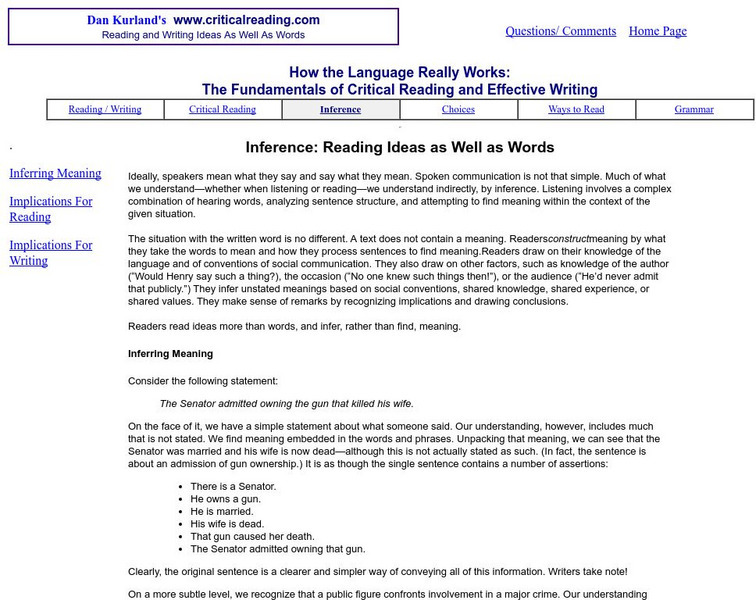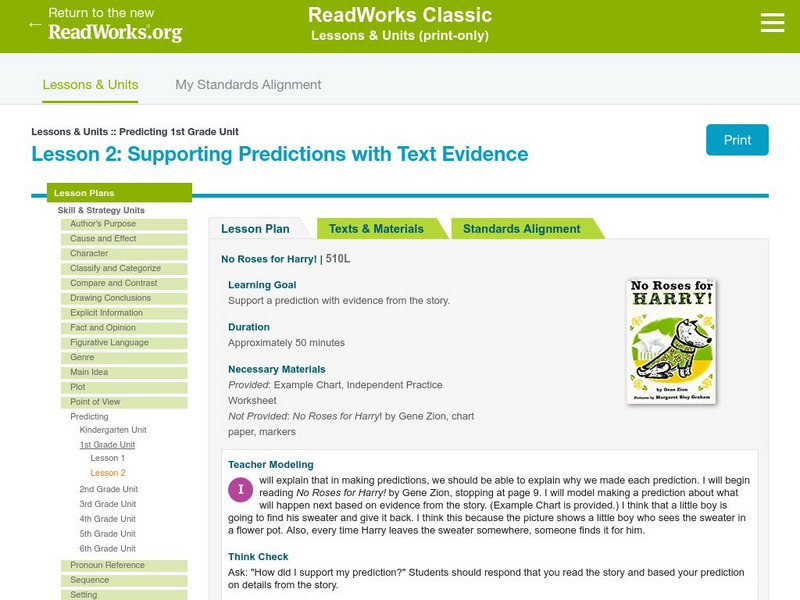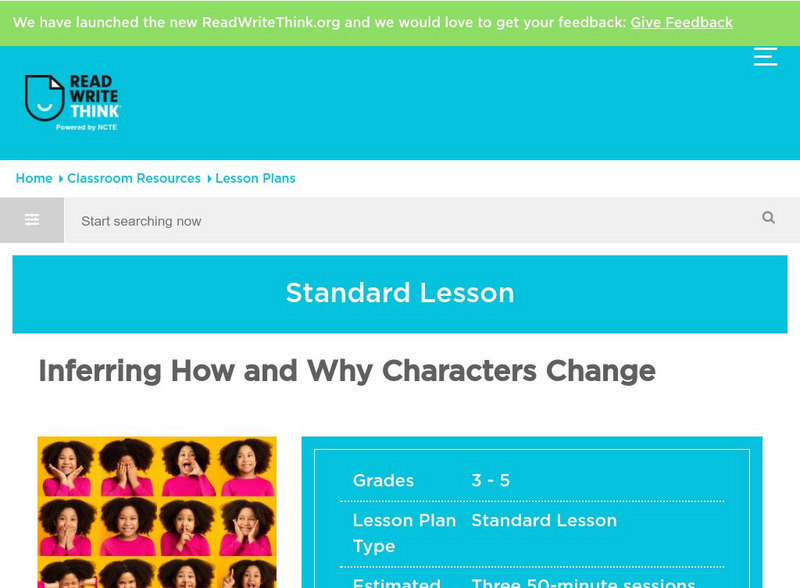Hi, what do you want to do?
Curated OER
Themes and Patterns of History
Fourth graders, in groups, explore recurring historical and geographical themes.
Curated OER
Photoelectric Devices
Fourth graders view a teacher-made PowerPoint presentation on how photoelectric devices work, and then they answer FCAT-like questions on the material presented. They answer questions about what they viewed in an assignment imbedded in...
Curated OER
Social Studies: African Folklore and Geography
Students discover the connection between geography and folklore in several African nations. In groups, they record information from maps of their assigned countries. Students observe the pictures in books and match the geographic...
Curated OER
The Study of the Spanish-Speaking People of Texas: Understanding Primary Sources
Learners analyze Russell Lee's photo essay as a sign of segregation in Texas. They consider the differences between primary and secondary sources and how historians use these sources.
Curated OER
Primary Sources
Students write personal facts on a photograph of themselves to create a Primary Source. They then define Primary Source and list examples as a class of places where they could find primary sources. They also discuss the importance of...
Curated OER
Asian Civilizations
Seventh graders complete computer based research to complete a travel brochure that highlights an Asian civilization.
Curated OER
Water Quality
Students investigate the water cycle and evaporation. They study the porosity and permeability of groundwater, and the capillary action in soil in this unit.
Curated OER
Microbial Contaminants in Drinking Water
When presented with three unopened bottles of water, students are asked to tell decide which one is contaminated with a microbe. Students work in small groups and role play being a Microbiologist, a patient, or a recorder. The patient is...
Curated OER
Canada 2050: Future Population Trends
Students analyze population data and a population pyramid projection for Canada. Using this information, they predict what the future trends in the population might be and its effect on Canadian society as a whole. They compare and...
Curated OER
Inventors Unit Survey
Learners develop and conduct a survey for their inventors unit. They create a five question survey and tally the survey results, and create a graph using Microsoft Word and Graph Club 2.0.
Curated OER
Cloning and Related Issues
Eighth graders research information on cloning and the surrounding issues online. They analyze the issues surrounding cloning and present their point of view with supporting details in a Powerpoint presentation.
Curated OER
Testing Weather Proverbs
Middle schoolers study weather proverbs. In this weather lesson, students list weather proverbs and complete the worksheet to test the proverb. Middle schoolers design an experiment to test the weather proverbs and conduct the experiments.
McGraw Hill
Read: Does Technology Make Us Lazy?
Compare these two passages for some interesting ideas about how technology affects our lives. The questions that follow ask you to identify the main idea from either direct statement or inference.
Reading Rockets
Reading Rockets: 103 Things to Do Before/during/after Reading
The highly-respected Reading Rockets program offers both teachers and students a toolkit of ways to connect more actively with the materials they read. Some of these techniques are specifically for fiction-reading, others are designed...
Better Lesson
Better Lesson: Introduction to Making Predictions and Inferences
First graders will engage in a shared reading of "Mr. C's Dinner" so that we can build a foundation for understanding what it takes to make good predictions and inferences.
Other
Daniel J. Kurland: Critical Reading: Inference: Reading Ideas as Well as Words
This college instructor offers his insights into critical reading and how to develop skills to interpret as well as comprehend the written word. RL.9-10.1, RL.11-12.1, RI.9-10.1 textual evidence and inference.
E Reading Worksheets
E Reading Worksheets: Making Predictions Worksheets and Lessons
In this learning module, students will learn more about making predictions in reading. Worksheets and a leson are provided to support Tier I, Tier II, and Tier III students.
Khan Academy
Khan Academy: Inferences About Information Quick Guide
Some questions in the Reading Comprehension section will ask you to make an inference about information in the passage. The answer may not be explicitly stated in the passage, but it will be supported by the content of the passage. In...
PBS
Pbs: Multiple Methods of Reading Instruction
This article surveys three strategies to incorporate into classroom repertoire. They include guided reading, choral reading, and readers' theater.
Mr. Nussbaum
Mr. Nussbaum: Galaxies Reading Comprehension
This learning module includes a nonfiction reading passage about galaxies including the Milky Way followed by a multiple choice self-assessment which gives students immediate feedback.
Other
Rhl School: Reading Comprehension: Using Inference
A good warm-up/introduction activity for a unit on inferences. This is a simple exercise to help teachers assess prior knowledge.
Read Works
Read Works: 1st Grade Unit: Supporting Predictions
[Free Registration/Login Required] A lesson utilizing the book No Roses for Harry! by Gene Zionin in which students make a prediction and then support it with details from the text. Ideas for direct teaching, guided practice, and...
Polk Brothers Foundation Center for Urban Education at DePaul University
De Paul University: Center for Urban Education: Lincoln's Choice [Pdf]
"Lincoln's Choice" is a one page, fictional, reading passage about young Abraham Lincoln saving a friend from drowning. It is followed by constructed-response questions which require students to provide evidence from the story; it...
ReadWriteThink
Read Write Think: How and Why Characters Change
This lesson plan examines and makes inferences into the change and development in characters. Included in the lesson plan is an overview, practice, objectives, resources, preparation, and more.


























